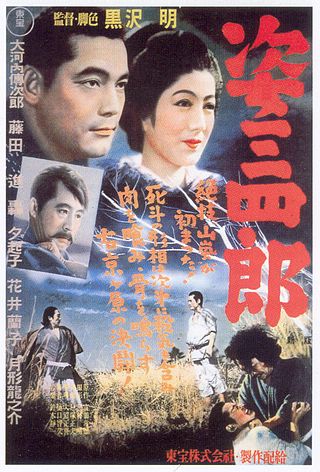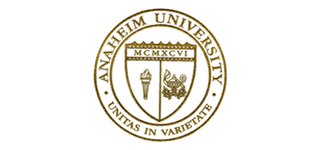
Akira Kurosawa was a Japanese filmmaker and painter who directed thirty films in a career spanning over five decades. He is widely regarded as one of the most important and influential filmmakers in the history of cinema. Kurosawa displayed a bold, dynamic style, strongly influenced by Western cinema yet distinct from it; he was involved with all aspects of film production.

Seven Samurai is a 1954 Japanese epic samurai drama film co-written, edited, and directed by Akira Kurosawa. The story takes place in 1586 during the Sengoku period of Japanese history. It follows the story of a village of desperate farmers who hire seven rōnin to combat bandits who will return after the harvest to steal their crops.

Throne of Blood is a 1957 Japanese jidaigeki film co-written, produced, edited, and directed by Akira Kurosawa, with special effects by Eiji Tsuburaya. The film transposes the plot of William Shakespeare's play Macbeth from Medieval Scotland to feudal Japan, with stylistic elements drawn from Noh drama. The film stars Toshiro Mifune and Isuzu Yamada in the lead roles, modelled on the characters Macbeth and Lady Macbeth.

Toshiro Mifune was a Japanese actor who appeared in over 150 feature films. He is best known for his 16-film collaboration (1948–1965) with Akira Kurosawa in such works as Rashomon, Seven Samurai, The Hidden Fortress, Throne of Blood, and Yojimbo. He also portrayed Miyamoto Musashi in Hiroshi Inagaki's Samurai Trilogy and one earlier Inagaki film, Lord Toranaga in the NBC television miniseries Shōgun, and Admiral Isoroku Yamamoto in three different films.

Rashomon is a 1950 Jidaigeki psychological thriller/crime film directed and written by Akira Kurosawa, working in close collaboration with cinematographer Kazuo Miyagawa. Starring Toshiro Mifune, Machiko Kyō, Masayuki Mori, and Takashi Shimura as various people who describe how a samurai was murdered in a forest, the plot and characters are based upon Ryunosuke Akutagawa’s short story "In a Grove", with the title and framing story being based on "Rashōmon", another short story by Akutagawa. Every element is largely identical, from the murdered samurai speaking through a Shinto psychic to the bandit in the forest, the monk, the assault of the wife and the dishonest retelling of the events in which everyone shows his or her ideal self by lying.

Sanshiro Sugata is a 1943 Japanese martial arts drama film and the directorial debut of the Japanese film director Akira Kurosawa. First released in Japan on 25 March 1943 by Toho film studios, the film was eventually released in the United States on 28 April 1974. The film is based on the novel of the same name written by Tsuneo Tomita, the son of prominent judoka Tsunejirō Tomita. It follows the story of Sanshiro, a talented though willful youth, who travels to the city in order to learn Jujutsu. However, upon his arrival he discovers a new form of self-defence: Judo. The main character is based on Saigō Shirō.

Stray Dog is a 1949 Japanese film noir crime drama directed by Akira Kurosawa and starring Toshiro Mifune and Takashi Shimura. It was Kurosawa's second film of 1949 produced by the Film Art Association and released by Shintoho. It is also considered a detective movie that explores the mood of Japan during its painful postwar recovery. The film is also considered a precursor to the contemporary police procedural and buddy cop film genres, based on its premise of pairing two cops with different personalities and motivations together on a difficult case.

High and Low is a 1963 Japanese police procedural crime film directed by Akira Kurosawa, starring Toshiro Mifune, Tatsuya Nakadai and Kyōko Kagawa. The film is loosely based on the 1959 novel King's Ransom by Ed McBain.

The Bad Sleep Well is a 1960 Japanese crime mystery film directed by Akira Kurosawa. It was the first film to be produced under Kurosawa's own independent production company. It was entered into the 11th Berlin International Film Festival.

Dodes'ka-den is a 1970 Japanese drama film directed by Akira Kurosawa. The film stars Yoshitaka Zushi, Kin Sugai, Toshiyuki Tonomura, and Shinsuke Minami. It is based on Shūgorō Yamamoto's 1962 novel A City Without Seasons and is about a group of homeless people living in poverty on the outskirts of Tokyo.

Shinobu Hashimoto was a Japanese screenwriter, film director and producer. A frequent collaborator of Akira Kurosawa, he wrote the scripts for such internationally acclaimed films as Rashomon and Seven Samurai.

The Men Who Tread on the Tiger's Tail is a 1945 Japanese period drama film written and directed by Akira Kurosawa, based on the kabuki play Kanjinchō, which is in turn based on the Noh play Ataka. It depicts a famous 12th century incident in which Yoshitsune and a small group of samurai cross into enemy territory disguised as monks.

Madadayo is a 1993 Japanese comedy-drama film. It is the thirtieth and final film to be completed by Akira Kurosawa. It was screened out of competition at the 1993 Cannes Film Festival. The film was selected as the Japanese entry for the Best Foreign Language Film at the 66th Academy Awards, but was not accepted as a nominee.

Fumio Hayasaka was a Japanese composer of classical music and film scores.

Kirigaoka is a small suburb of Yokohama city located in the Midori-ku ward (緑区). It translates directly into a "Misty Hill". Kirigaoka is bound from the North-West by Tōmei Expressway, from the North by Tōkaichiba (十日市場) neighbourhood, from the East by a Niharu-shimin-no-mori forest and in the South by another suburb called Wakabadai (若葉台).
The Akira Kurosawa Memorial Short Film Competition is a major international short film awards ceremony, run by the Akira Kurosawa Foundation. Since the inaugural 2004-2005 competition, the Grand Prix and numerous other prizes have been awarded on an annual basis.

Anaheim University is a nationally accredited for-profit university based in Anaheim, California.
Jakoman and Tetsu is a screenplay by Akira Kurosawa and Senkichi Taniguchi that was based on the novel Nishin gyogyo by Keizo Kajino. It has been adapted into film twice.
Toshio Kurosawa is a Japanese actor and singer from Yokohama, Kanagawa Prefecture. Kuroswa joined Toho film studio as an actor and made his film debut with Hibari Chiemi Izumi Sanninyoreba in 1964. His first starring role was in the 1966 film Hikinige. In 1971, Kurosawa left Toho and became a freelance actor.

Chieko Nakakita was a Japanese actress. She appeared in the early films of Akira Kurosawa and later starred in many films by Mikio Naruse.















